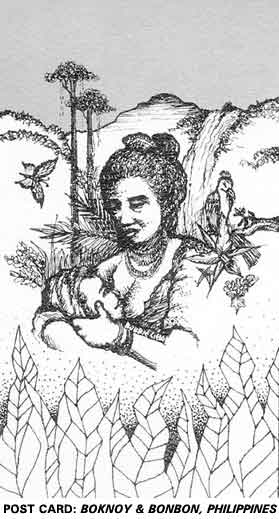
The Supreme Court concluded that the Pharmaceutical Health Association of the Philippines is mistaken in its claim that the Milk Code’s coverage is limited only to children 0 to 12 months old. Since breast milk substitutes may also be intended for children more than 12 months of age, the Supreme Court asserted that the Milk Code should also protect and promote the nourishment of children more than 12 months old.
The judgment also supported the DOH’s recommendation for new labeling requirements where milk packaging should visibly state that the infant formula may contain pathogenic micro-organisms, as well as other health warnings and risks.
The World Health Organization respects and applauds the Supreme Court’s wisdom.
We are pleased that the Supreme Court saw the merits of the DOH’s case in regulating the marketing of milk products to help improve the country’s low breastfeeding rates and help save children’s lives. This move by the Supreme Court reaffirms the key direction of the National Infant and Young Child Feeding Policy inspired after the Global Strategy developed by UNICEF and WHO.
Breastfeeding and appropriate and safe complementary feeding alone can save the lives of 16,000 Philippine children every year. It is the single most effective protection against diarrhea, pneumonia, and infections. Breastfeeding also can improve the health of children in a country where over 25% of youngsters under five years old are undernourished.
We congratulate the DOH for its commitment to the revised Implementing Rules and Regulations of the Milk Code. We are delighted that amidst the many challenges in the past two years to resolve this matter, the DOH, along with local and international breastfeeding advocates, such as UNICEF Philippines, Save the Babies Coalition led by Arugaan, the World Breastfeeding Action Group (WABA), IBFAN Network, Baby Milk Action UK, La Leche League, and many others remained faithful in their role to protect Philippine children’s health and welfare.
We are confident that this development will pave the way for an end to the misleading statements and false claims of milk companies that for many years have undermined breastfeeding efforts in the country.
WHO will continue to support the DOH in its efforts to improve breastfeeding rates in the Philippines and see to a better and healthier future for Philippine children.
 Home | Aims and Objectives of Solidarity Philippines Australia Network | About Kasama
Home | Aims and Objectives of Solidarity Philippines Australia Network | About Kasama 
Search the SPAN Web